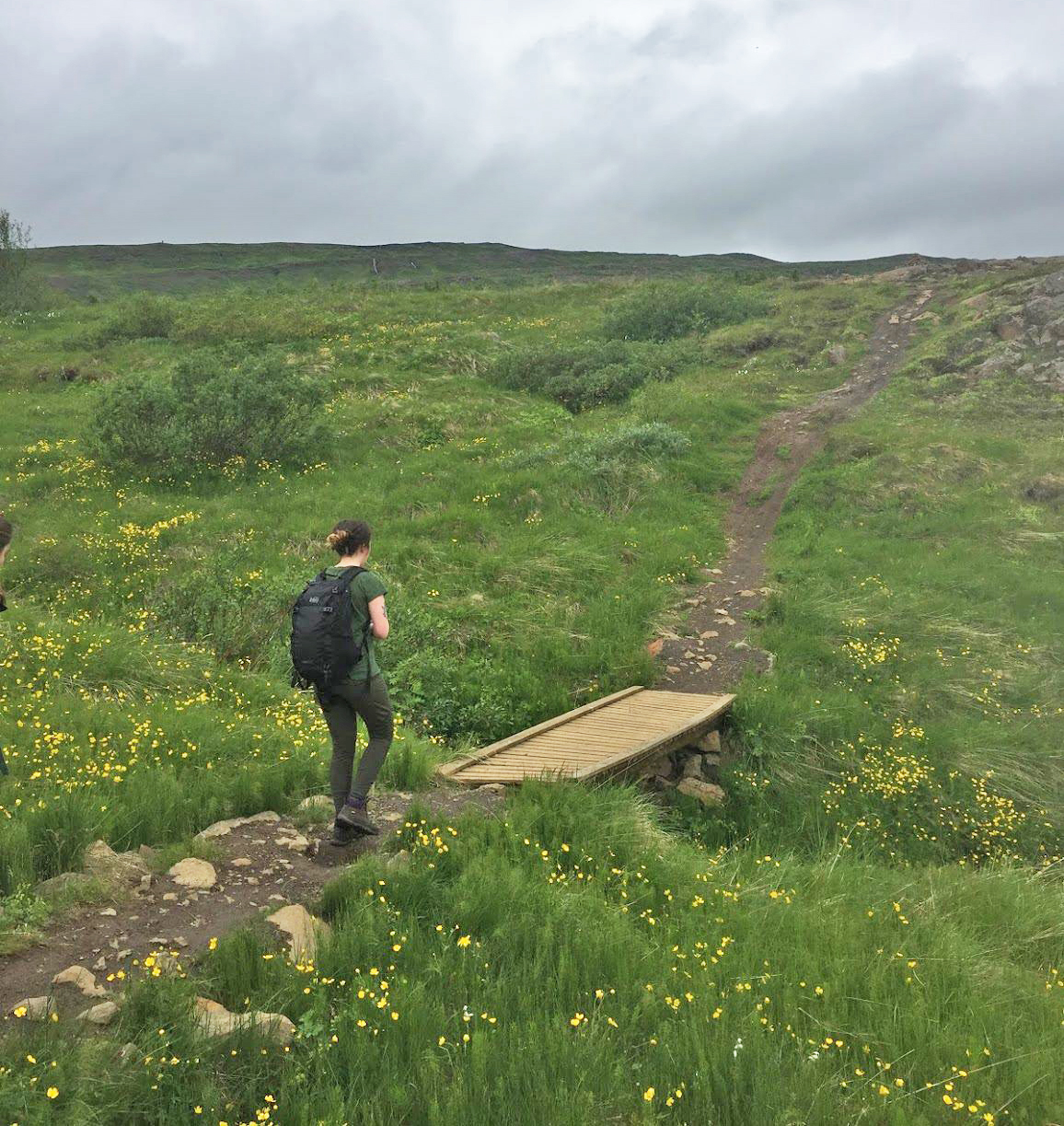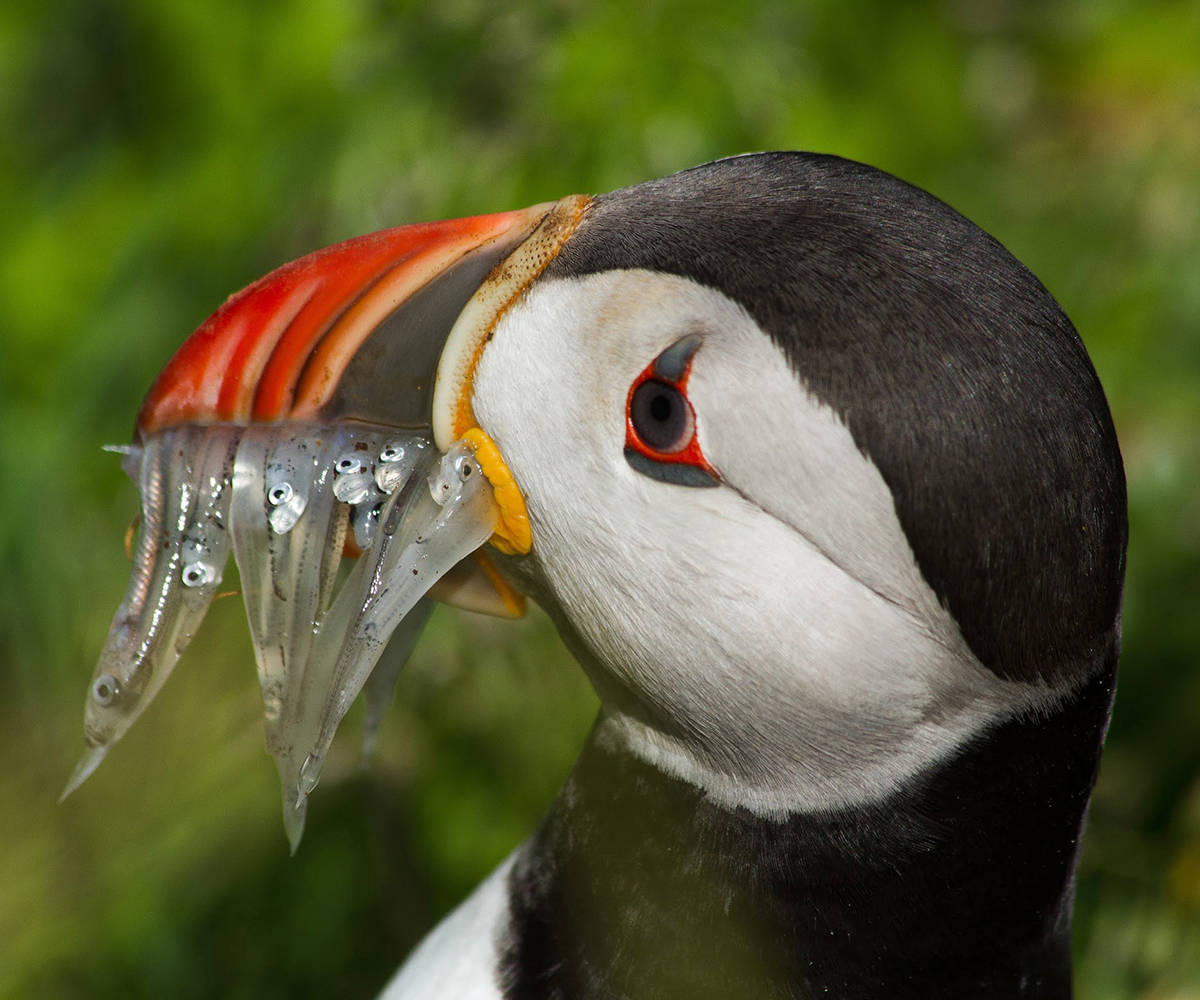Program Details
Location: Reykjavik, Iceland
Dates: Summer 2026: June 23—August 5, 2026
Applications: Accepted on a rolling admission basis
Accommodations: Primarily camping, occasional youth hostel or rural lodge
Credits: 15 quarter credits or 10 semester credits
Language: English instruction
Courses: Environmental Wildlands Studies, Environmental Field Survey, Wildlands Environment and Culture
Prerequisites: One college level course in environmental studies, environmental science, ecology or similar. 18 years of age
Program Costs
Iceland Summer 2026
$ 150 Application Fee
$ 7,750 Program Fee
$ 5,100 In-Country Logistics Fee
$ 1,500 Estimated Airfare and Mandatory Travel Insurance
$ 1,400 Estimated Food and Personal Expenses
$15,900 Total Estimated Cost
Summer 2026: Program fees due by May 1, 2026
The Program
The Iceland Program will traverse some of the most unique and fascinating geological and biological landscapes that can be found nowhere else on the planet. Our journey will begin on the Reykjanes Peninsula, where we will visit critical nesting grounds and assist scientists with ongoing oystercatcher research. We will then travel southeast where we will learn about the impacts of climate change as we backpack between glaciers and explore glacial lagoons. In East Iceland we will observe puffins and seals, study plant diversity, discuss criteria for sustainable fisheries, and learn about the challenges that Iceland has faced due to deforestation and the damming of glacial rivers. Next, we will head to the Melrakkasletta Peninsula, the northernmost region of Iceland, where we will spend a week at an Icelandic research station and assist with coastal and marine monitoring efforts across a tundra landscape. Next, we make our way west to learn about geothermal energy as we visit the geologically active Myvatn region, discuss and debate sustenance hunting as we interact with communities founded on whaling, and reside at remote farms to learn about the importance of agriculture in Iceland. In the West Fjords we will study iconic Arctic species as we visit the Arctic Fox Centre, and complete a project focused on marine debris at Rauðasandur beach. Finally, as we head south toward the capital region, we will explore the tidal environment in Snæfellsnes National Park, and study seismology in Þingvellir National Park, where the boundary between the North American and Eurasian tectonic plates is situated. From active participation in research, interacting with various stakeholders, trekking across diverse landscapes, and reflecting in our scientific journals while immersed in nature, the Iceland Program is guaranteed to provide students with a deep understanding of the Arctic, the environmental challenges that this region is facing at an unprecedented rate, and the measures that can be taken to solve complex, environmental challenges.
Academic Syllabus
Student Program Manual
Stories From the Field
Jane Port
ICELAND 2023 Alumni
“The six weeks that I spent on the island of Iceland were truly some of the most incredible, formative, and beautiful moments of my life. We followed the famous Ring Road, circumnavigating the island and exploring glaciers, experiencing exploding volcanoes, swimming under remote waterfalls, and watching never ending sunsets. My favorite experience was hiking the Fimmvörðuháls trail from Skogár to Thórsmörk, where we stayed at a remote hut between two glaciers and then hiked down to the Thórsmörk Valley, surrounded by towering peaks and giant glaciers. It was there that I saw the best sunset of my life and solidified bonds with other students that still hold up today.
We also visited both hydroelectric dams and geothermal energy facilities to learn about and understand how these renewable energy sources work. It was really cool to see how one of the world’s leaders in sustainable energy goes about utilizing it, and seeing the impacts that it can have on the land and people that use it.
Staying for six weeks in Iceland really allowed us to immerse in the culture of the country. Whether it was learning about how bread can be baked in the ground or choosing our own unique sweaters knit by Icelandic grandmas or exploring downtown Reykjavik, there was so much to experience and learn about. Wildlands truly allowed us to immerse ourselves in a different country, culture, and way of life that wouldn’t be possible in another program or way of travel.”
Watch the Iceland Video
Jenna Spackeen
lead instructorPhD in Marine Science, Virginia Institute of marine science, 2017
Jenna is an oceanographer who is interested in nutrient cycles and the impacts of global change. Her research has taken her all over the world. She has spent a considerable amount of time aboard research vessels in the Arctic and at field stations in Antarctica, investigating how climate change affects phytoplankton communities and the cycling of nutrients in the ocean. Her research has also taken her to Mexico, where she studied food web interactions in estuary systems. Jenna is passionate about science outreach and experiential education. She believes that personal awareness, environmental appreciation, and a desire to make the world a better place can be fostered when one is immersed in nature. Jenna leads our Iceland , Australia and Chile programs.





















